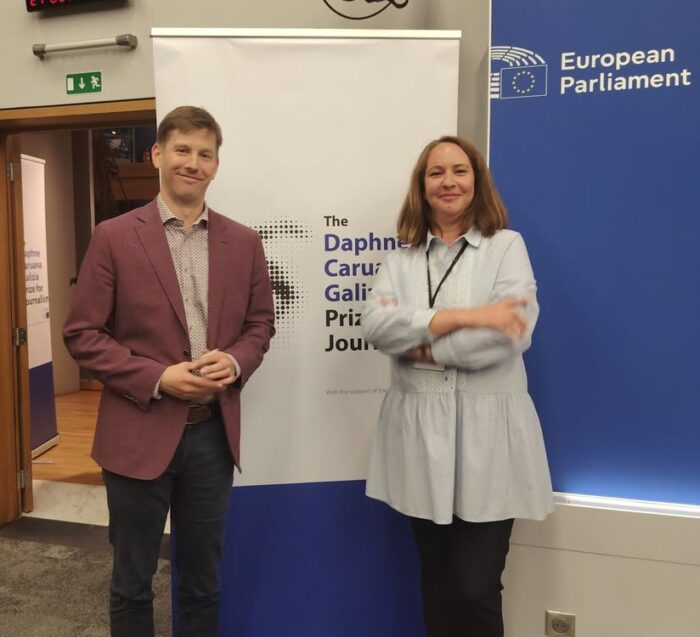The Daphne Caruana Galizia Prize Awarded: “We Play Our Small Role in Uncovering the Truth”
- SNH
- 22.10.2025
- 2119 pregleda
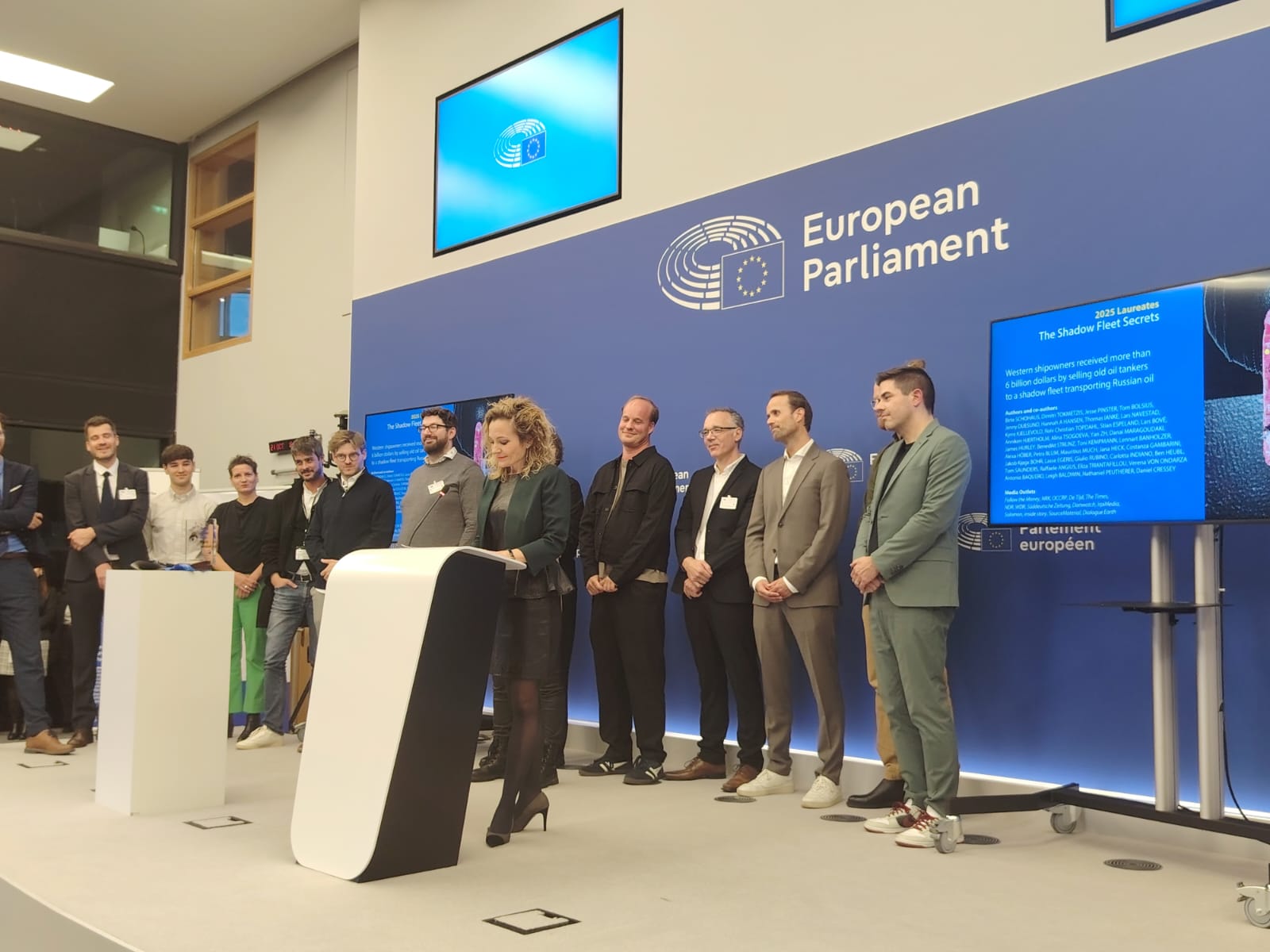
Investigative journalism was the focus of the plenary session of the European Parliament in Strasbourg, during which the award for investigative journalism named after the murdered Maltese journalist Daphne Caruana Galizia was presented. A group of investigative journalists who won the award gathered in the European consortium Follow the Money for their story “The Shadow Fleet” — an exposé on how European shipping companies earn billions by leasing tankers to Russians for the transport of sanctioned oil. “What drives me forward,” asked Birte Schohaus, who accepted the award on behalf of the consortium, “is that we play our own, perhaps small, but important role in uncovering the truth.” This year, the European Parliament decided to give greater attention to the award, allowing all ten finalists to present their work to the public. One among them was the award-winning journalist Barbara Matejčić, who reached the finals with her story “Wide-Angle Shot of Death”, published in Croatia by Novosti and in Serbia by BIRN.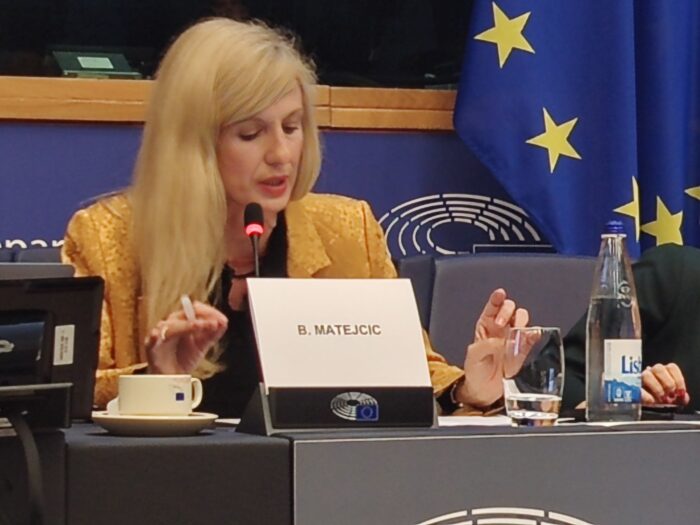
“This story has meaning and purpose,” said Barbara Matejčić, who reached the finals with an individual project about a photograph of a murder taken during the war in Bosnia and Herzegovina, unlike most of the finalists, who worked within journalist consortia with substantial budgets. You can read Barbara Matejčić’s article at this link. 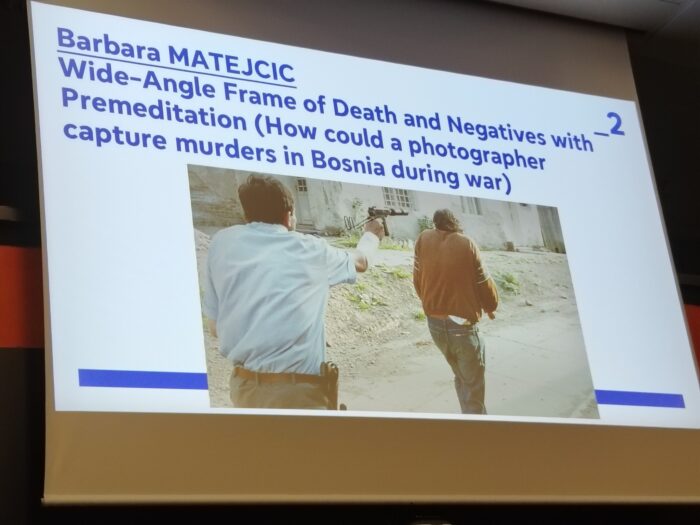
The entire award ceremony, as well as the conference preceding it, was marked by symbolism. Sigfrido Ranucci, an Italian investigative journalist whose car was blown up with explosives just five days earlier, on October 16, the anniversary of Daphne’s murder, addressed the audience via video link. “Our democracy in Italy has become sick, but this pathology has become our normal,” he said. He called on Europe to sincerely protect journalists, especially local ones. “They suffer bullying, go unpaid, and are threatened by both criminals and their editors-in-chief.” He added that a great deal is expected from the European Media Freedom Act (EMFA).
Roberta Metsola, President of the European Parliament, also emphasised that full implementation of EMFA is expected from EU member states by 2026 — and that they should go even further in protecting media freedom. She reminded attendees of another chilling symbol: nine years have passed since Daphne’s murder, yet there is still no justice for her and no punishment for her killers.
A special moment and the loudest applause at the pre-award conference went to Eman Alhaj Ali, a freelance journalist from Palestine, and Mohammed Albaba, a photographer. 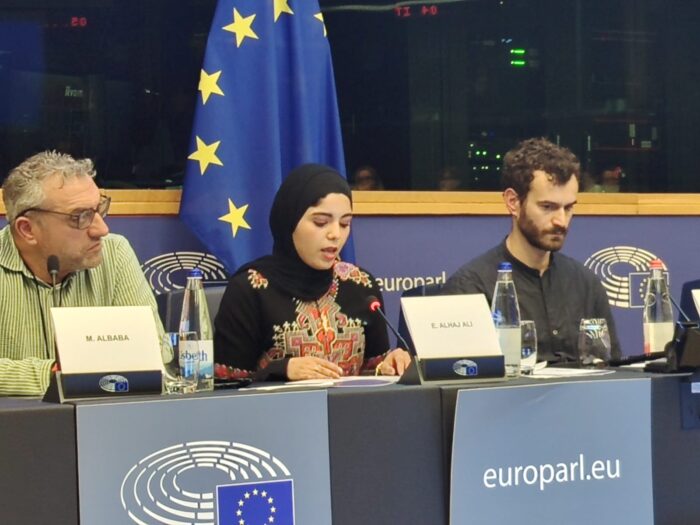 They spoke with deep emotion about the killings of fellow journalists in Gaza and about living and working amid hunger, forced displacement, the daily loss of family and friends, and constant fear for their lives. “The PRESS sign and helmet in Gaza are an invitation to be killed, not tools meant to protect us,” said Alhaj Ali, concluding that after this war, in every future one, killing journalists might become completely normal.
They spoke with deep emotion about the killings of fellow journalists in Gaza and about living and working amid hunger, forced displacement, the daily loss of family and friends, and constant fear for their lives. “The PRESS sign and helmet in Gaza are an invitation to be killed, not tools meant to protect us,” said Alhaj Ali, concluding that after this war, in every future one, killing journalists might become completely normal.
Esther Solomon editor-in-chief of Haaretz, Israel’s liberal daily newspaper, also shared her perspective:
“We live under a regime whose goal is to silence the media. Currently, self-censorship and the motto ‘Eyes Wide Shut’ dominate the majority of the media. It is to be expected that Netanyahu and his far-right government, ahead of the elections anticipated in the spring, will accelerate their crusade toward total control of the media.”
Haaretz is among the outlets that petitioned Israel’s Supreme Court to allow their journalists access to Gaza. Now that a fragile ceasefire is at least formally in place, they hope the Court will have no grounds to deny their request to report from Gaza.
Report and photos by: Mila Moralić, member of the Daphne Caruana Galizia Prize jury.